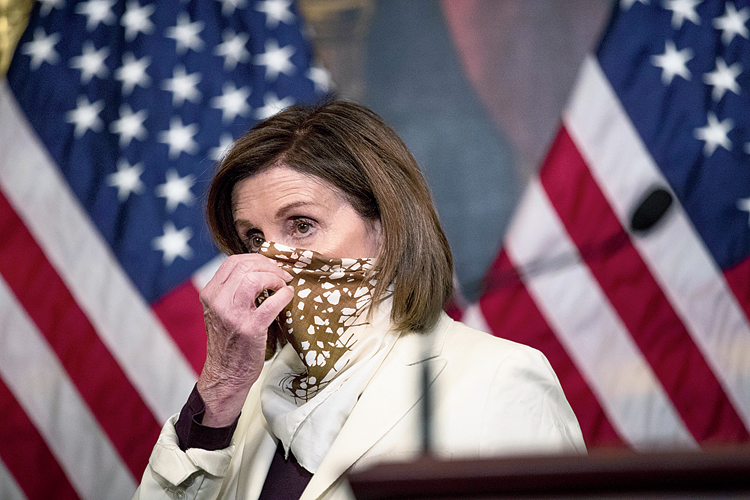The US House of Representatives on Thursday gave resounding approval to a $484 billion coronavirus relief package to restart a depleted loan programme for distressed small businesses and provide funds for hospitals and coronavirus testing, and moved to increase oversight of the sprawling federal response to the pandemic.
President Donald Trump said he was “grateful” for the action to refill the loan programme and indicated he would sign the measure. It was the latest instalment in a government aid programme that is approaching $3 trillion, which passed with broad bipartisan support even as some Democrats condemned it for being too stingy.
But the fight over what should be included foreshadowed a pitched partisan battle to come over the next round of federal relief, which is likely to centre on aid to states and cities facing dire financial straits.
Even as they dispensed with another nearly half-trillion taxpayer dollars, Democrats were moving to scrutinise the administration’s handling of the funds.
Just before the aid package passed, they pushed through a measure creating a special committee to investigate the Trump administration’s response to the pandemic and the array of federal spending measures enacted to address it, defying objections from Trump and Republicans.
The committee, which will have the power to subpoena documents and witnesses, is charged with examining how the coronavirus relief packages were rolled out, and scrutinizing “preparedness for and response to the coronavirus crisis”.
The package passed on Thursday was an interim step after enactment of the $2.2 trillion stimulus law. It emerged after a flurry of negotiations between Democrats and the Trump administration after funding lapsed for the Paycheck Protection Program, a small-business loan programme created by the stimulus plan that had been overwhelmed by demand as soon as it began.
The measure replenished that programme, providing $320 billion for it, but at the insistence of Democrats who demanded additional funds and policy changes, it also included $75 billion for hospitals and $25 billion for testing — plus a mandate that the Trump administration come up with a strategy for helping states deploy and access tests across the country.
The vote took place in a House chamber transformed by the pandemic. It was an impassioned debate as lawmakers, most of whom covered their faces with blue surgical masks or homemade swaths of fabric in an array of colors, patterns and glitter, reflected on the effect of the pandemic on their individual districts. Speaker Nancy Pelosi donned purple latex gloves to cast a vote.
Multiple lawmakers who had previously had to isolate outside of Washington after testing positive or being exposed to Covid-19 returned to vote. Representative Maxine Waters, Democrat of California, her voice cracking with emotion, said that she dedicated the bill to her sister, who was dying of the disease in a St. Louis hospital.
Representative Alexandria Ocasio-Cortez of New York, who has said the measure was far too small and should include aid to struggling states and cities, was the sole Democrat who opposed the bill. Four Republicans voted “no,” while Representative Justin Amash, the chamber’s lone independent, voted present.
Some high-profile sovereign creditors are signalling a tentative willingness to help poorer countries with debt relief during the coronavirus pandemic - but many also caution that it won't be as simple as it sounds.
Last week’s agreement by G20 governments to freeze as many as 77 poorer nations' debt payments for the rest of the year came with a warning from the head of the World Bank that private investors shouldn't expect a “free ride”.
All are fully aware of the problem. Defaults are already starting and across Africa, where the WHO is warning of up to 10 million coronavirus cases within six months, countries are facing a combined $44 billion debt-servicing bill this year alone.











